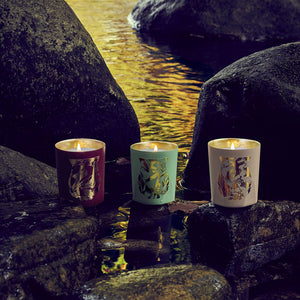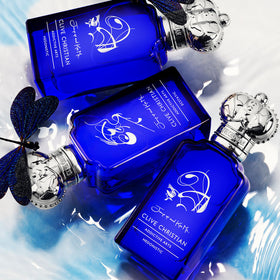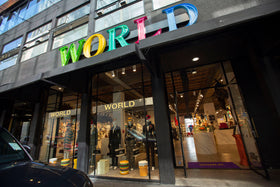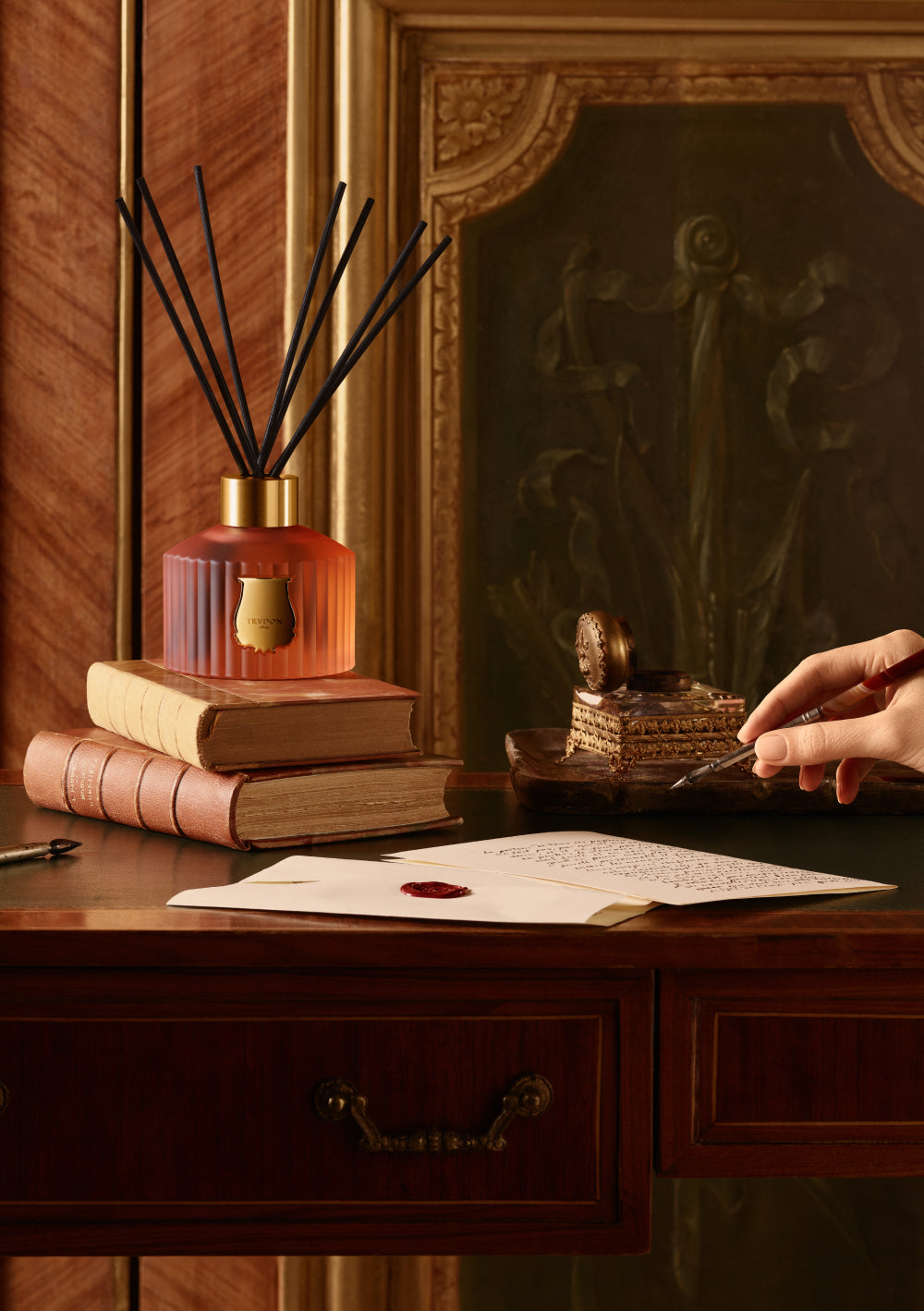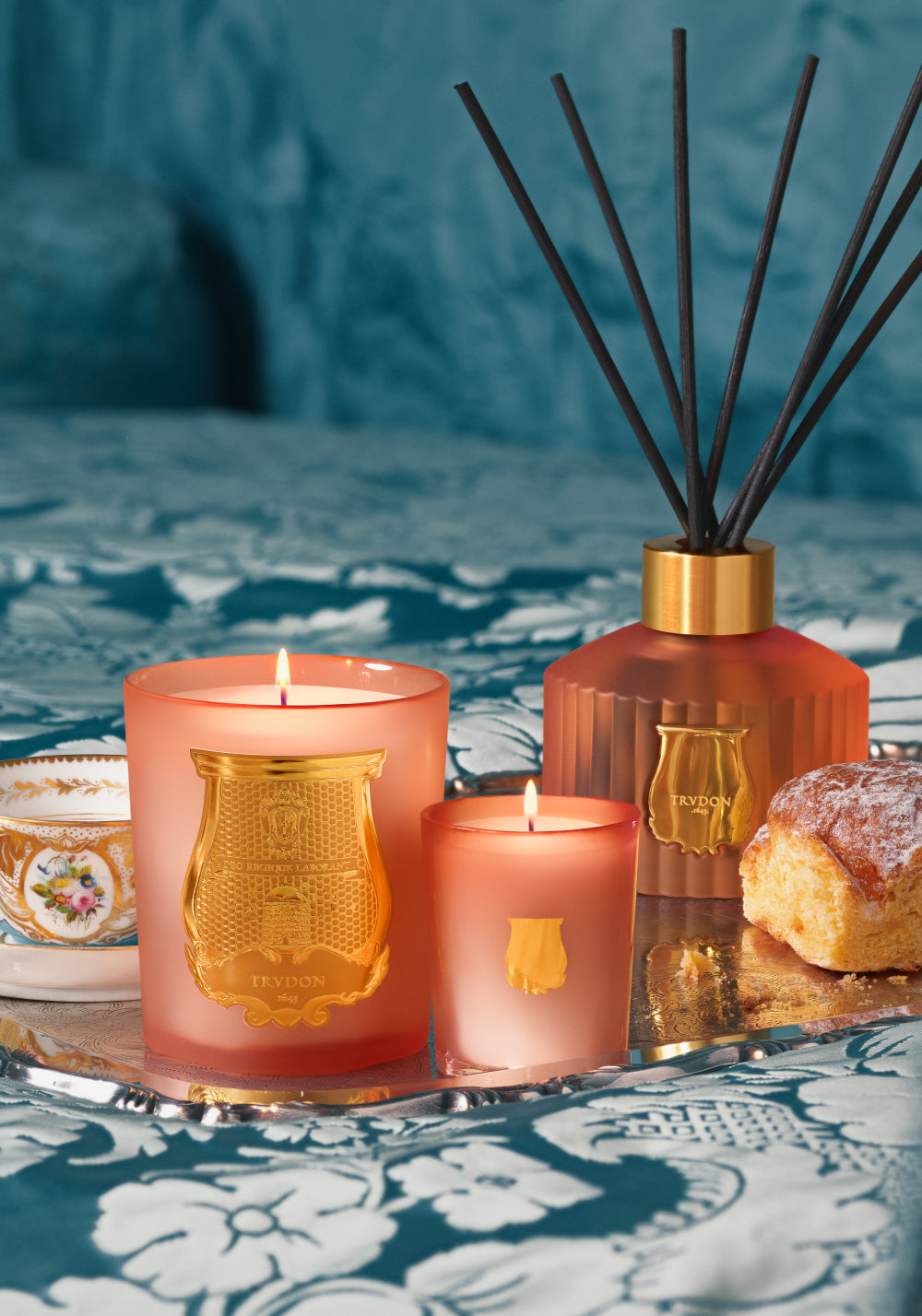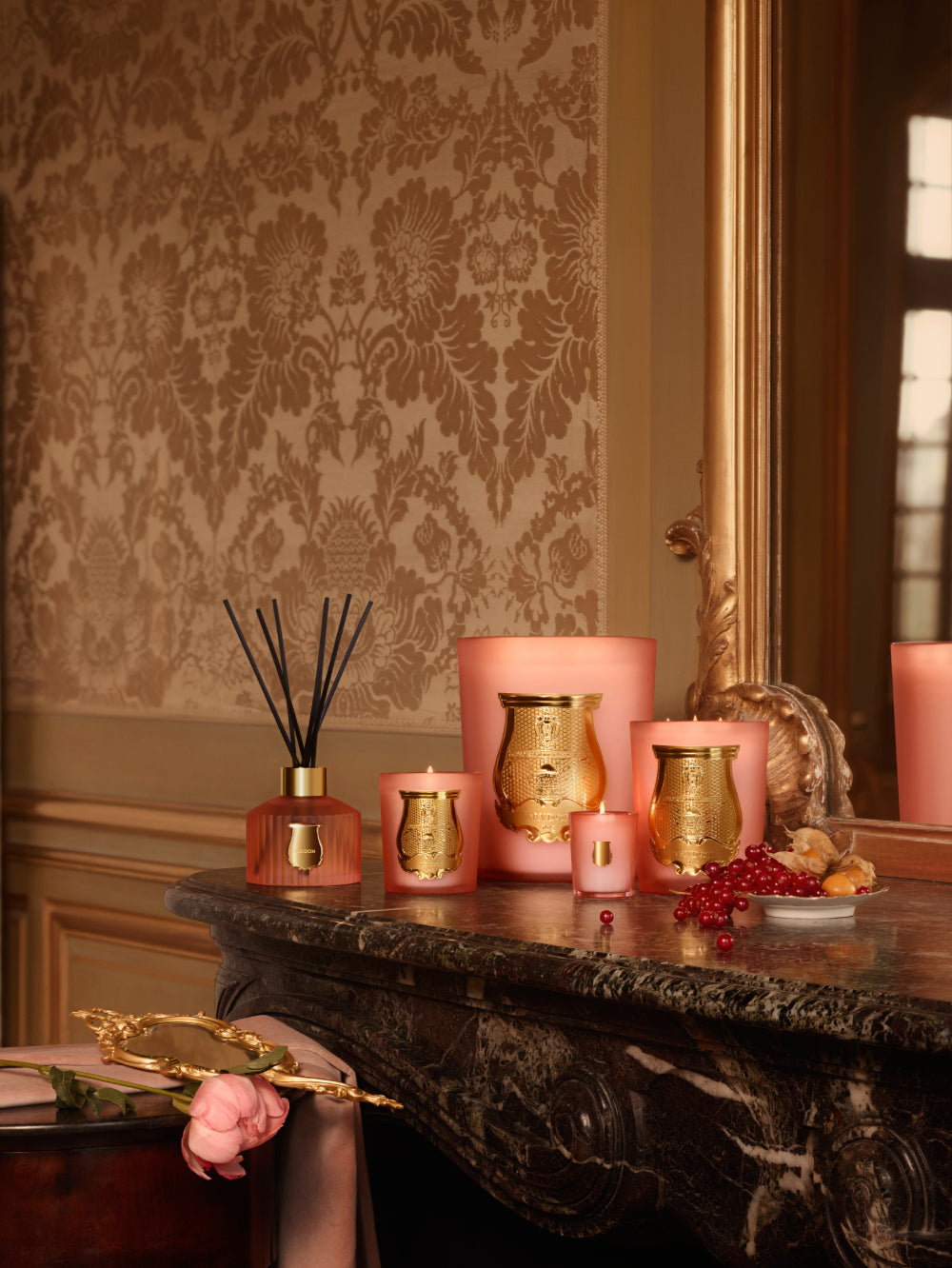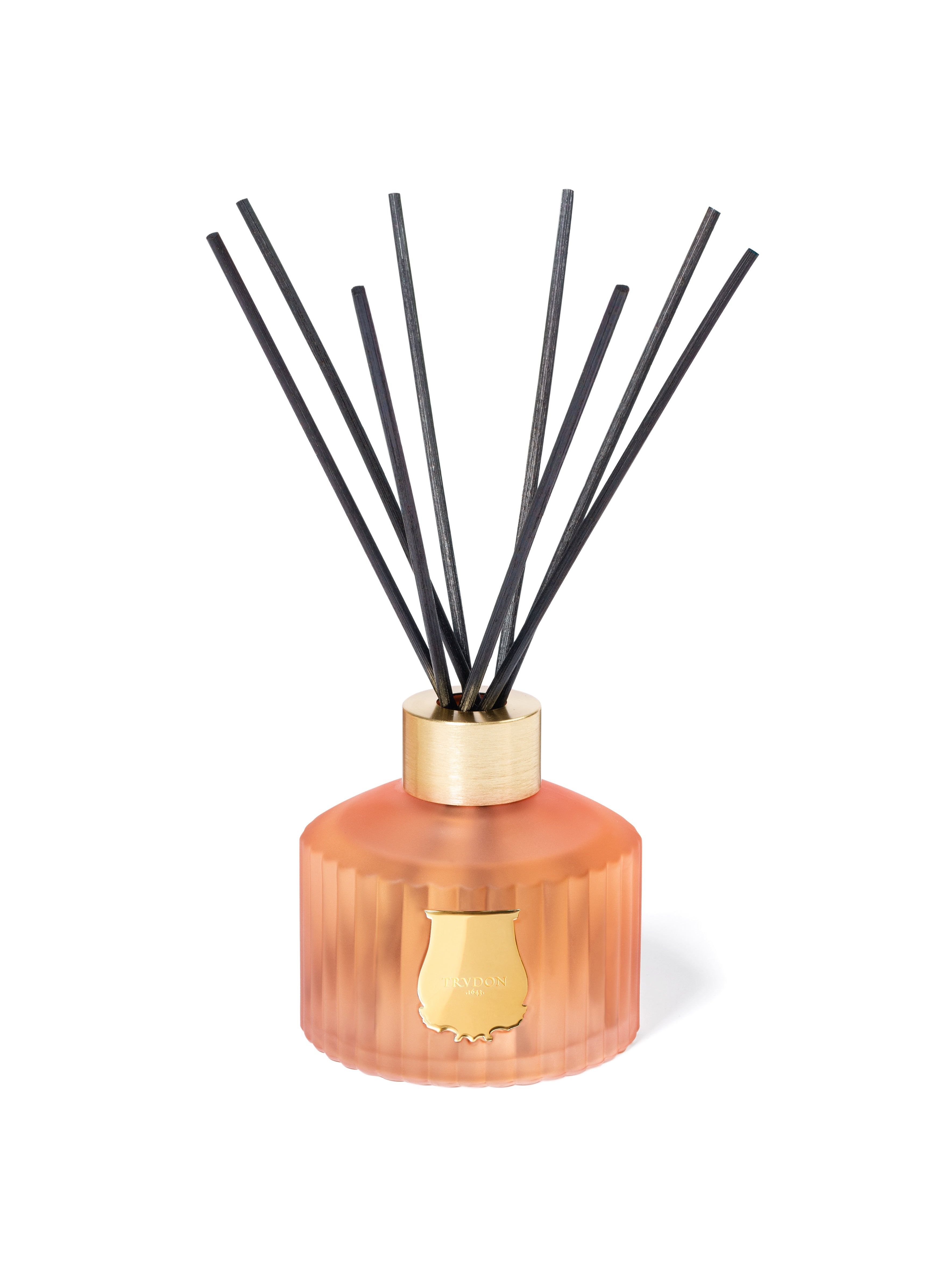
CIRE TRUDON Le Diffuser TUILERIES 350ml
For its 380th anniversary, Trudon dives back into history and launches a new collection named Tuileries: the new scent – available in four candle sizes along with a diffuser and refill – the celebration hints back at the French heritage and the countless stories it holds.
The Tuileries collection finds its inspiration in a rare document kept at the French National Archives: the Gazette des Atours de la Reine. In what seems like an ordinary notebook, Countess Geneviève d’Ossun – a French courtier who served as lady-in-waiting and first maid of honour to Marie Antoinette – gathered many fabric samples used to tailor the sovereigns’ many dresses and royal outfits.
The fragrance was conceived as a homage to the rose, the Queen’s favourite flower throughout her life.
Handcrafted in the same glass manufacture as the candles, the Diffuser is topped with a 100% recyclable aluminium ring. Through it, you place 8 natural, black rattan sticks. This is a 350ml fluted container adorned with a gold emblem.
The diffuser allows a 3 to 4-month long, passive diffusion.
Separate refills available.
Head Notes
Pink berry, Blackcurrant, Mandarin
Heart Notes
White Flowers, Raspberry, Geranium, Rose
Base Notes
Musk, Patchouli, Sandalwood, Vanilla
=======================================
History
In the early months of the French Revolution, Marie-Antoinette and King Louis XVI were forced to leave Versailles for the Tuileries Palace in Paris, which was located across from the Louvre. From the 6th of October 1789, the reigning family was confined under house arrest, where they would remain until 10 August 1792. Although less well known than the glorious years at the Versailles and Trianon chateaux, this historical period is well documented in public and private archives, many of which
are held at the French National Archives.
Shortly after the Revolution, the Royal Wax Manufacture, under the ownership of the Trudon family, lost its status as supplier to the King and its future was in jeopardy. It was ultimately granted an administrative authorisation to remain in business and even to continue supplying the
royal family until its last days.
Between 1791 and 1792, though the Queen was kept under close surveillance after an escape attempt, she still managed to write letters to her confident, Axel von Fersen, a Swedish count, she met in 1774 during a masquerade ball at the Opera de Paris.
Madly in Love
The letters have been censored by some actor, scrawling out words and lines with tightly looped circles of ink. Recently scientists have revealed the content of 15 of the censored letters between Queen Marie-Antoinette and Court von Ferson using a technique which can detect the chemical signatures of different inks without damaging documents.
Although the content of the Queen's correspondence with the count is frequently political, the letters also capture some of the most extreme moments of her life: She's under house arrest, and she fears for her life and her family. The letters show the depth of Marie-Antoinette's affection for her close friend during her turmoil. Words like "beloved", "tender friend", "adore" and "madly" have been revealed.
Many historians suspect the Count's great nephew, Baron R.M de Klinckowstrom, to be the censor, perhaps to preserve his family reputation against rumours. But a recent scan unveils that the mysterious censor is: The Count von Fersen, himself.
=======================================
Heritage
In 1643 a salesman named Claude Trudon arrived in Paris and became the owner of a store in Rue Saint-Honoré. He was a grocer but also a wax merchant and supplied his customers with candles for lighting their homes and for the parish. On the eve of Louis XIV's reign, Trudon thus created a small family manufacturing business that was to carry his name forward and make the fortune of his heirs. His son Jacques also became a shopkeeper and wax producer and entered the court of Versailles in 1687, as apothecary distiller of Marie-Thérèse, wife of the King. In the 18th century, in 1737, Hierosme Trudon purchased the most famous wax factories of the era from the official wax provider to King Louis XV. Trudon grew and began supplying the French court and the most important churches. The Trudon company supplied Versailles until the very end of the monarchy. As Napoleon's wax producer during the Empire, the company survived the arrival of domestic lighting and the birth of the "electric revolution" continuing to prosper. Trudon continued its work throughout the centuries, without ever interrupting its activity, particularly through the making of traditional candles and perfumed candles for the greatest names. It is now the oldest and most prestigious wax manufacturer in the world.




